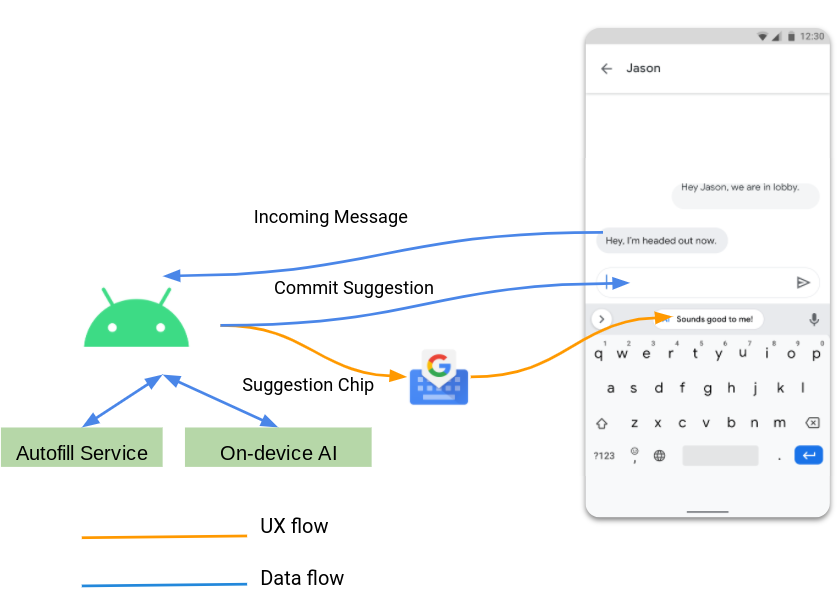
Google’s ‘Gboard’ Gets Locally-Generated Suggestions While Barring App Access
- The ‘Gboard’ takes a more central position in Android 11, enjoying a unified system that generates suggestions.
- Google never gets to receive private user information, and neither is the app where the Gboard is activated on.
- Some anonymized and encrypted data is sent to Google for federated analysis during idle times.
Google’s Android keyboard app ‘Gboard’ has gone through an upgrade in the privacy system that keeps user inputs stored locally on the device while still allowing the machine-learning AI to develop better suggestions.
In Android 11, input suggestions became unified and consistent, which enabled Google’s engineers to add “Smart Replies” to all the places where Gboard was invoked. As the tech giant explains, the system runs entirely on the device, so none of the user-accepted suggestions are sent to its servers.
For this to work, Google has built a system of trust boundaries between the Android system and Gboard, which essentially prevents the app from ever accessing sensitive data. The suggested reply generation is done on the system level, so neither Gboard nor the app where it has been invoked at will get anything until the user accepts the suggestion chip. If nothing is accepted, nothing will be revealed about the generated suggestions.
At the same time, Google relies on federated analytics to understand how Gboard is used without having to scrape data from IDed users. In fact, the company admits that privacy-preserving analysis has enabled them to make better decisions about their product, that address wider-spectrum optimizations. The beaming of this data is done during times when the phone is idle but connected to WiFi. Things like what emojis are used, how frequently, and when, is encrypted and sent to the federated analytics server.
As Google shares now, 😂 is the most popular emoji in Whatsapp, 😭 in Roblox, and ✔ in Google Docs. As for the “hot” 😷 emoji, it has moved up from position 119 to 42 during COVID-19. Emojis constitute a popular way for users to express themselves in chats, and Google wants to enrich its emoji predictions in English, and even in Portuguese or Spanish.
Gboard currently supports over nine hundred languages, so being able to enrich them with an effective suggestions system is an impressive feat that is based on many years of training of a character-level recurrent neural network. Google has been doing that since 2014, optimizing its methods and technology, while allegedly always respecting user privacy.









